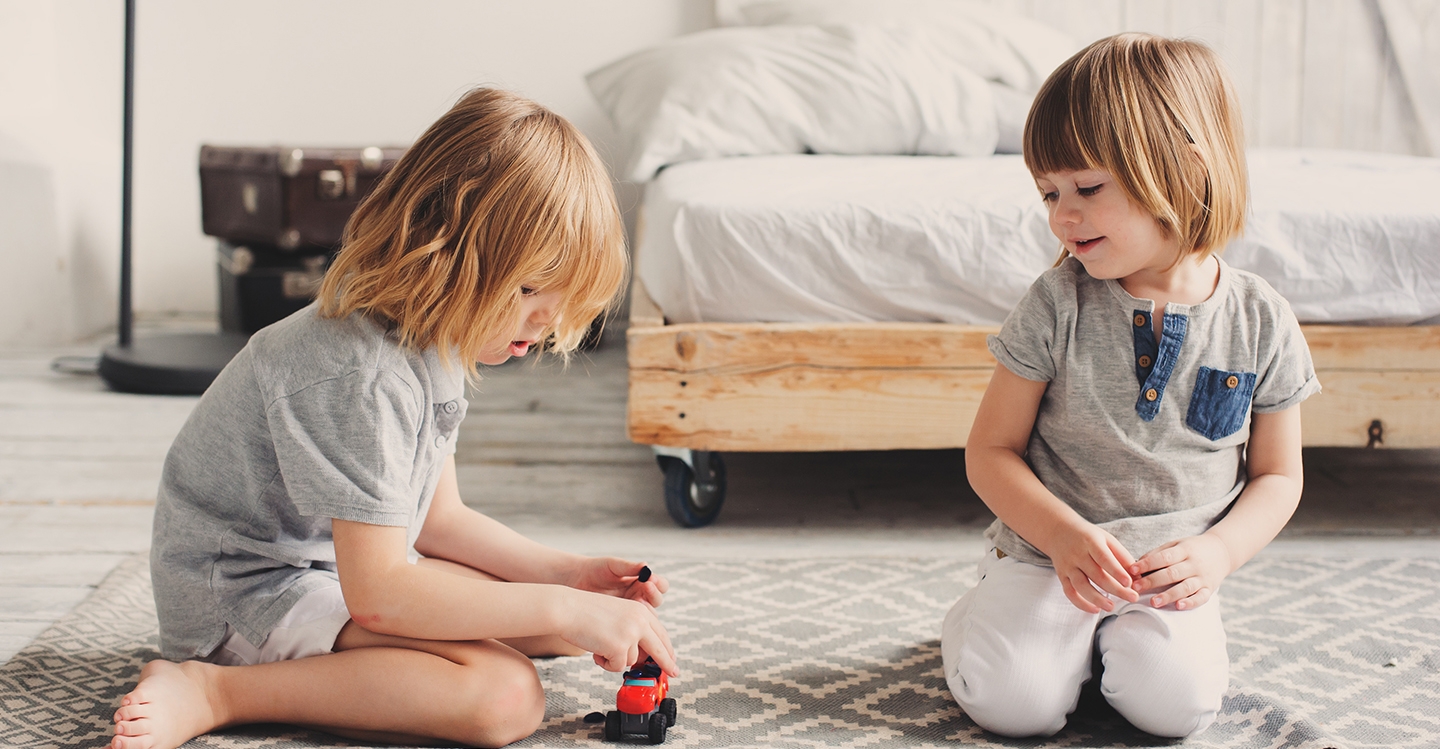Every toddler is more or less the centre of their own world. But few live in a vacuum; they are going to be interacting with other people, especially other toddlers, sooner rather than later. That's why it's so important to develop the skill of sharing
What's so important about sharing?
Sharing is the cornerstone of all human societies. Sharing builds trust, nourishes relationships and lets another person know that you are aware of and appreciate that they also have feelings, needs and desires.
It can be tough for young toddlers to ponder all these concepts, but what they can start to learn is the difference between fair and unfair. This is going to help your toddler develop friendships with those around them during playdates or at kindergarten, and certainly at primary school.
Strategies for encouraging your toddler to share
Set a good example
Toddlers tend to copy what they see others doing. If you make a point of sharing or taking turns – whether with another adult, a child or your toddler – and explain what you're doing, your toddler will start to pick up on the cues and see that sharing is normal and expected.Observe and point out sharing in others
If you are with your child in a situation where others are sharing, make a point of it. 'Wasn't that kind of Sam to share his truck?'Do activities or play games that require turn-taking
Any game or activity that has an inherent requirement for turn-taking will help normalise turns and sharing for your toddler.Encourage sharing on play-dates
If you are having children around to play with your toddler, explain that they will need to share their toys. Ask your toddler what games or toys they might like to share with their friend. Usually toddlers have favourite toys that they guard jealously, so it's best to keep these out of the way.Praise sharing when it occurs
As soon as you see your toddler sharing something, say it! 'I love the way you shared your ball with Nicola!' or 'Thank you for sharing your drink with me, that made me feel nice. How did it make you feel?' At this age, praising your child in front of other children isn't going to embarrass them. That comes later!What can I do if my toddler is refusing to share?
- Ask your toddler how they would feel if someone didn't share with them. This tactic can take some getting used to, but along with the development of other emotions and processes, it will start to sink in
- Support your toddler with practice at home. Share food with them and explain what you're doing. 'Here is a sandwich we're going to share. I'm going to have half and you're going to have half. Is that fair?'
- Be present during playtime with others. Gently encourage your child to share. If they make a scene you might want to talk quietly to them and reinforce the importance of sharing
- As a final resort, remove the item that is being argued over. Explain why you've removed it and also that if they are ready to share, they can have the toy back



